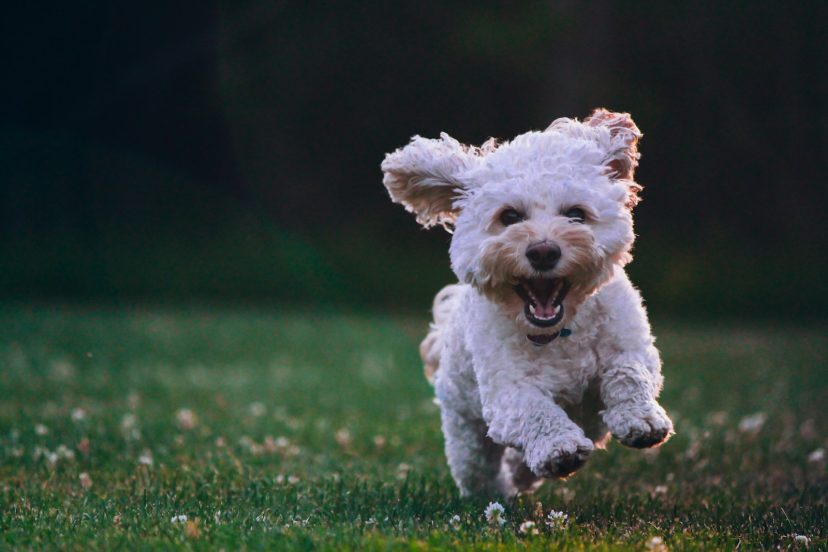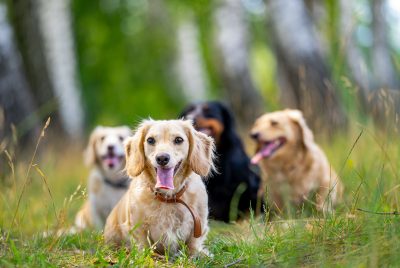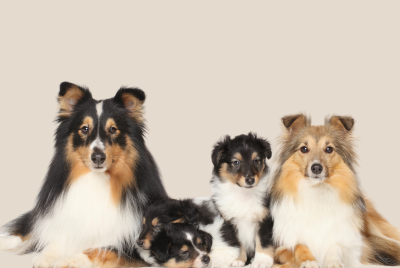Can Poodles Be Guard Dogs?
The top-rated dogs are poodles which are usually prim and proper companion dogs but have the potential to also make great guard dogs. So, can poodles be guard dogs? Absolutely, yes!
By nature, poodles possess high intelligence that combined with their athleticism can enable them to be protective of their families and properties when given appropriate training. We will delve into whether these attributes and temperaments make them suitable for security purposes.
Poodle Breed Traits
Poodles are highly trainable canines that aim at pleasing. They have lots of energy, they are athletic and they can be very nimble. Additionally, the breed is widely known for its intellect and is always among the leading breeds in obedience and working intelligence tests.
Those qualities put them in a good position where people train them to become watch dogs. Here are some key poodle characteristics:
- Highly intelligent and trainable
- Energetic and athletic
- Eager to please owners
- Excellent memory
- Alert and observant
- Loyal and protective of family members
Poodle Temperament
Poodles are often associated with show rings, but they were originally bred as water retrievers. This working background gives them an active temperament. Poodles bond closely with their families and are affectionate companions. But they also have natural protective instincts that can be honed through training.
Standard poodles in particular tend to be more territorial and wary of strangers compared to the smaller varieties. They have a boldness and confidence that lends itself well to guard dog duties. With proper socialization they can learn to differentiate between real threats and benign visitors.
Training a Poodle for Protection
Any dog breed has the potential to be protective, but poodles are especially primed for guard dog training because of their intelligence. Their capacity for learning means they can excel at complex tasks. However, they must be taught proper boundaries and behaviors through dedicated training.
Obedience Training: The foundation for any guard dog is a solid obedience skill set. A poodle should master basic cues like sit, stay, come, down, heel, and place. This provides control and establishes you as the leader.
Boundary Training: Teach your poodle to understand property lines and which areas are off limits to strangers. Use markers like fencing, gates, or flags. Reward them for patrolling the perimeter.
Alarm Training: Poodles have a loud, carrying bark that makes an excellent alarm. Teach them to bark on command at any suspicious sights or sounds. Reward selective barking.
Control Training: Guard dogs should not act aggressively without permission, so “quiet” and “enough” commands are important. Reward calm behavior in the presence of strangers.
Advanced Training: Some poodle owners choose to advance into bite work and attack training with a professional, but this requires an experienced trainer.
Socialization Is Essential
Guard dog training must be paired with extensive socialization to avoid over-protectiveness or aggression issues. Poodles should be exposed from puppyhood to a wide variety of sights, sounds, people, and other dogs in a positive manner. With proper socialization, poodles learn to distinguish between normal stimuli and true threats.
Are Poodles Good Guard Dogs?
With their intelligence, loyalty, trainability and protective instincts, poodles do make excellent guard dogs for families, homes, and even businesses. Their athletic build and stamina suits them for security tasks. And their typically aloof attitude toward strangers is an advantage.
A Poodle must be socialized early and trained strictly, just like any other breed, to encourage its innate protective instincts. However, when handled properly by the right person, a Poodle can make a great companion as well as being an alert and protective home guardian.
Limitations of Poodles as Guard Dogs
While poodles possess many traits that make them suitable guard dogs, there are some limitations to consider:
Small Size: Miniature and Toy Poodles which are small sized cannot intimidate physically intruders in the same way that large breeds do. Those of standard size have bigger stature for guarding purposes.
Not Naturally Aggressive: In terms of guarding situations this might be limiting due to their natural aggressive nature. Unlike many others, they lack an inherent watchfulness.
Grooming Requirements: Whenever their hair grows long enough to obscure their sights, it is possible that the grooming needs of poodles could interfere with their abilities as guard dogs.
Not Ideal for Attack Training: While advanced bite work and attack training is possible, Poodles do not tend to excel in this area compared to breeds like German Shepherds. Their guarding abilities are best on alarm barking and deterrence.
Prone to False Alarms: Some Poodles may bark frequently or give false alarms, which undermines their effectiveness. Their alarm barking needs to be selectively reinforced during training.
Better as Watchdogs: Experts note Poodles tend to be better watchdogs than true guard dogs. Their bark and intelligence makes them excellent alarms, but they may not actively confront an intruder.
So in summary, Poodles can serve as guard dogs but have some inherent traits that may limit their effectiveness in that role compared to breeds that are more naturally suited to protection work. Their strengths lean more towards watchdog duties.
What triggers a poodle’s protective behavior?
There are several potential triggers for protective behavior in poodles:
Perceived threats to their family or home territory: Poodles are loyal dogs who form strong bonds with their families. They tend to show protective behaviors like barking, growling, or standing between their family and a perceived threat.
Strangers approaching or entering their territory: Poodles can be wary of strangers and may show defensive body language or barking when unknown people approach the home. Their territorial instincts kick in.
Being in pain or discomfort: A poodle in pain may become irritable and snap or bite in self-defense. Underlying health issues can trigger aggressive reactions.
Lack of proper socialization: Poodles who are undersocialized as puppies may see unfamiliar people or dogs as threats more often, triggering protective aggression.
Resource guarding: Poodles can be possessive over items like food, toys, or their owner’s attention. Attempts to take these resources away can trigger defensive behaviors.
High prey drive: The hunting instincts of poodles may cause them to be protective and aggressive towards small animals or wildlife they perceive as prey.
So in summary, poodles are protective dogs and their guarding behaviors can be elicited by perceived threats to themselves or their family/territory. Socialization and training helps poodles differentiate between real threats and non-threats.
Conclusion
In conclusion, poodles do have the potential to be trained as guard dogs thanks to their intelligence, athleticism, trainability, and loyal nature. While they may not have the most powerful protective instincts innate in some breeds, poodles can learn to use their bark, agility, and attentiveness to deter intruders and threats when properly trained.
Their energetic temperament, combined with their strong bonding to their family, gives them the ability to take on guard dog duties of patrolling, sounding alarms, and standing their ground when necessary. However, limitations like their grooming needs, smaller size, and lack of natural aggression mean they are better to being watchdogs than true attack or guard dogs.
With dedicated training and socialization starting as a puppy, a poodle can become a versatile companion that protects their home and family while also being an affectionate pet. While poodles have some drawbacks as guard dogs, their intelligence and adaptability allow them to take on this role better than many other breeds when in the right hands. They can transition from playing with kids to sounding an alarm at a moment’s notice, making them alert, observant protectors.




